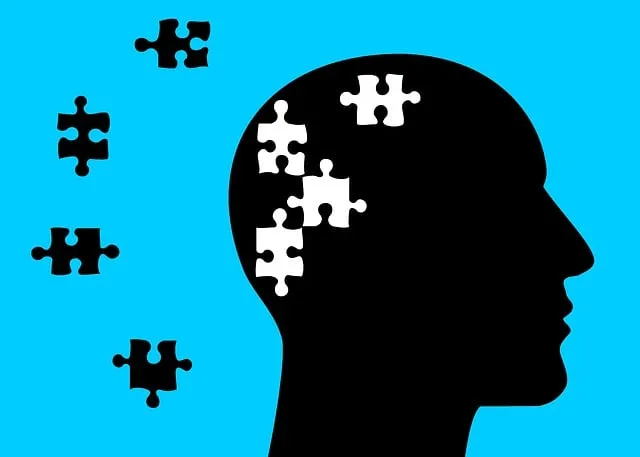Kaiser Permanente's comprehensive mental health coverage in Golden plays a pivotal role in combating the stigma around mental illness. Through accessible resources, educational programs, and initiatives like the Mental Wellness Podcast Series, they encourage open conversations, dispel myths, and normalize therapy. This multi-faceted approach combines direct care with community engagement, fostering an environment where help-seeking is encouraged without judgment. By reducing financial barriers and providing tools for self-management, Kaiser Permanente's model can be replicated to promote mental wellness and reduce stigma across communities.
Mental illness stigma remains a significant barrier to individuals seeking help. This article explores comprehensive strategies to reduce this societal burden, focusing on understanding the roots of stigma and its impact on care-seeking behaviors. We examine innovative approaches like Kaiser Permanente’s inclusive mental health coverage and the role of insurance policies, such as Golden, in fostering open dialogue. Additionally, we highlight community engagement, education, and long-term empowerment strategies to create a more supportive society for those facing mental health challenges.
- Understanding Stigma: Barriers to Seeking Help
- Kaiser Permanente's Approach: Comprehensive Mental Health Coverage
- The Impact of Insurance on Stigma Reduction: A Case for Golden
- Community Engagement and Education: Breaking Down Stigma
- Strategies for Long-term Change: Empowering Individuals and Societies
Understanding Stigma: Barriers to Seeking Help

Stigma surrounding mental illness acts as a significant barrier for many individuals who need help but are afraid to seek it. This societal misconception often leads to feelings of shame and isolation, causing people to suffer in silence rather than reach out for support. Many struggle under the weight of unspoken distress, not realizing that professional assistance is readily available and designed to foster emotional healing processes.
Kaiser Permanente’s mental health coverage plays a crucial role in combatting this issue by offering accessible resources and promoting awareness about mental wellness. Their programs encourage open conversations around mental illness, helping to dispel myths and normalize the experience of seeking therapy. With initiatives such as the Mental Wellness Podcast Series Production, they provide platforms for sharing stories of recovery and resilience, boosting confidence among those facing similar challenges.
Kaiser Permanente's Approach: Comprehensive Mental Health Coverage

Kaiser Permanente has made significant strides in reducing mental illness stigma through its comprehensive mental health coverage. The organization understands that addressing mental health issues requires more than just treating symptoms; it involves destigmatizing conversations and fostering an environment where individuals feel comfortable seeking help. Kaiser Permanente’s approach includes a multi-faceted strategy, focusing on both direct care and community engagement.
Their Golden mental health coverage provides access to a wide range of services, including specialized therapy, medication management, and support groups. Additionally, they design and implement Mental Health Education Programs that equip individuals with emotional regulation skills and crisis intervention guidance. These programs not only educate the public but also promote understanding and empathy, playing a crucial role in breaking down barriers associated with mental illness.
The Impact of Insurance on Stigma Reduction: A Case for Golden

Mental health coverage through organizations like Kaiser Permanente plays a pivotal role in reducing stigma associated with mental illness. By offering comprehensive Kaiser Permanente mental health coverage, individuals are more likely to seek help without fear of financial burden, a significant barrier that contributes to the perpetuation of stigma. This accessibility fosters an environment where open conversations about mental well-being can flourish, ultimately boosting confidence among those struggling.
Furthermore, initiatives such as Stress Management Workshops Organization and Self-Care Routine Development for Better Mental Health, often integrated into Kaiser Permanente mental health coverage plans, empower individuals with tools to manage their mental health proactively. These efforts not only alleviate symptoms but also challenge societal norms surrounding mental illness, demonstrating that prioritizing mental well-being is a responsible and beneficial choice.
Community Engagement and Education: Breaking Down Stigma

Community engagement and education play a pivotal role in reducing the stigma surrounding mental illness. By bringing mental health discussions into public forums, schools, workplaces, and community centers, we can foster an environment where mental well-being is prioritized. Kaiser Permanente’s comprehensive mental health coverage underscores the importance of accessible care and raises awareness about available resources. These initiatives encourage open conversations, dispelling myths, and promoting understanding.
Educational programs, including self-awareness exercises and crisis intervention guidance, equip individuals with the knowledge to recognize signs of distress and offer support. Furthermore, training risk assessment for mental health professionals ensures that those in helping roles are adept at identifying and addressing mental health concerns effectively. Such efforts collectively contribute to a more inclusive society where mental illness is met with empathy rather than judgment.
Strategies for Long-term Change: Empowering Individuals and Societies

Mental illness stigma reduction requires long-term strategies that empower both individuals and societies. One effective approach is Kaiser Permanente mental health coverage, which ensures accessible and affordable care, fostering a culture where seeking help for mental health issues is normalized. This model can be replicated and scaled across communities, promoting mental wellness and reducing barriers to treatment.
Empowerment starts with education and social skills training that equips individuals with the knowledge and tools to manage their mental health effectively. Additionally, Risk Management Planning for Mental Health Professionals plays a crucial role in creating safe and supportive environments for both practitioners and clients. By integrating these strategies, communities can build resilience against stigma, encouraging open conversations about anxiety relief and fostering a more inclusive society.
Mental illness stigma reduction is a multifaceted endeavor that requires comprehensive approaches. As seen with Kaiser Permanente’s inclusive mental health coverage and the potential for insurance policies like Golden, structural changes can significantly impact access to care. Community engagement and education play a pivotal role in breaking down barriers, fostering understanding, and encouraging help-seeking behaviors. Ultimately, empowering individuals and societies to view mental illness as a treatable health condition, similar to physical ailments, is crucial for long-term change and improved well-being for all.






